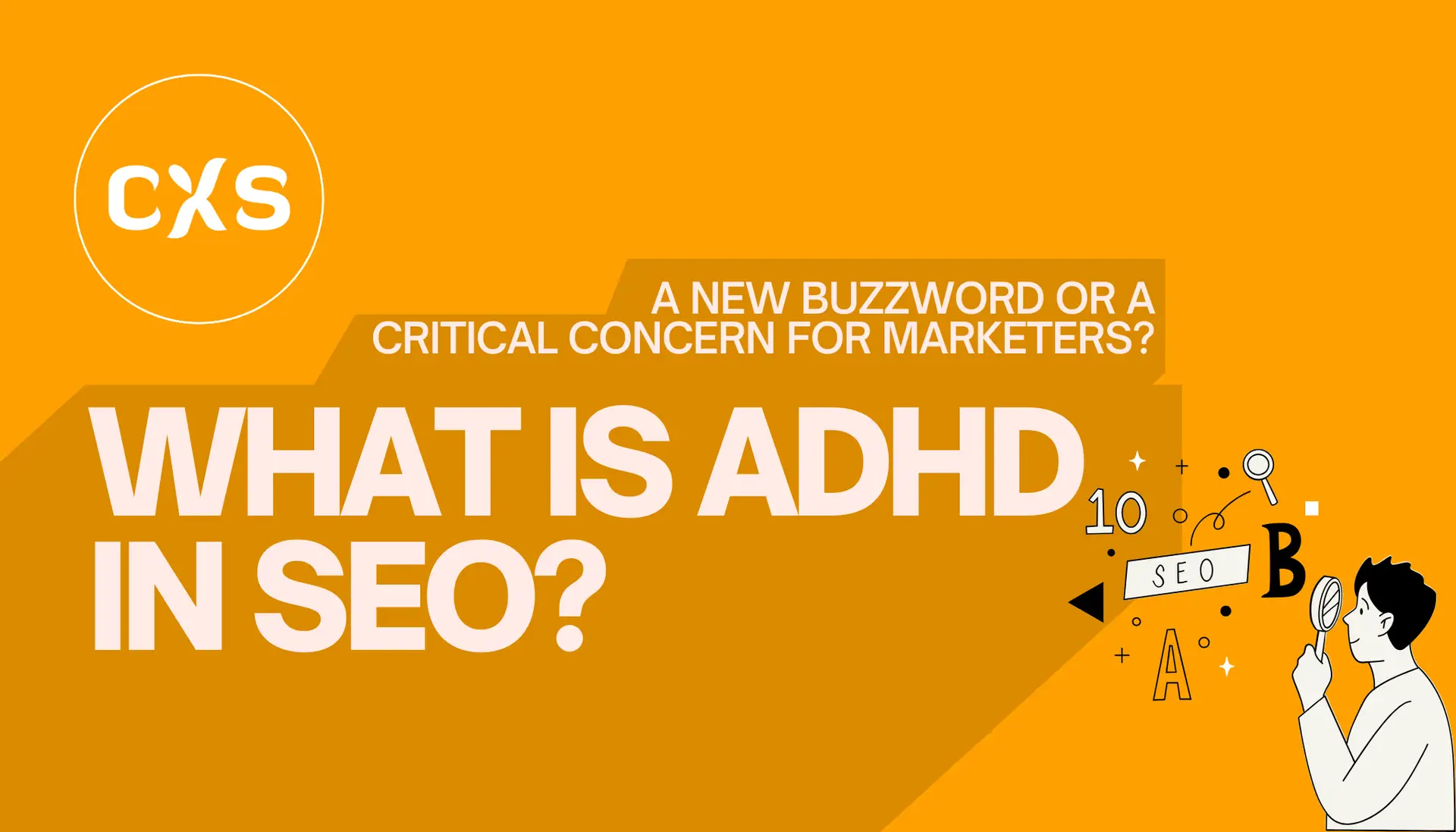What is ADHD in SEO?
The digital marketing landscape is ever-evolving, with new terms and trends emerging regularly. The latest buzzword making waves in the SEO industry is “ADHD in SEO.” But what does it really mean? Is it a clever metaphor or a real issue that marketers should address? Let’s dive deep into this new term and understand its impact on search engine optimization strategies.
Understanding ADHD in SEO: The Basics
In traditional psychology, ADHD (Attention Deficit Hyperactivity Disorder) refers to a condition where individuals face challenges with focus, impulsivity, and hyperactivity. However, in the context of SEO, ADHD stands for the tendency of marketers to jump from one SEO strategy to another without sticking to a consistent plan.
The term highlights a significant issue in digital marketing: the impulsive, erratic behavior of constantly chasing trends and shiny new tools without mastering or fully utilizing the existing ones. This approach can hinder long-term SEO success and create confusion in content strategies.
Why ADHD in SEO is Gaining Attention
This concept gained popularity as SEO experts began to notice a pattern in how many marketers handle their optimization efforts. Instead of sticking to proven strategies, they continuously chase the latest algorithm updates, keyword trends, and tools. This behavior mirrors ADHD traits in a metaphorical sense:
Lack of focus on core SEO practices
Impulsive decisions based on new trends
Inconsistent content strategies
Hyperactive switching between tools and techniques
SEO professionals are now warning that this scattered approach can do more harm than good, leading to inconsistent rankings, poor user experience, and ineffective content strategies.
Related: SEO Trends in 2025
The Risks of ADHD in SEO
Marketers with an ADHD-like approach to SEO often face several challenges:
1. Inconsistent Content Strategy
Jumping from one keyword strategy to another can result in disjointed content. This can confuse both search engines and users, reducing your site’s authority.
2. Poor Time Management
Switching between multiple tools and strategies wastes valuable time that could be better spent on perfecting core SEO practices.
3. Algorithm Anxiety
Chasing every Google update without understanding its relevance to your site can cause anxiety and lead to impulsive changes that aren’t necessary.
4. Lower Rankings
Constantly changing strategies can confuse search engines about your site’s purpose, causing lower rankings and reduced visibility.
How to Avoid ADHD in SEO
To overcome this challenge, marketers need to adopt a more focused and disciplined approach to SEO. Here are some practical tips:
1. Stick to a Solid SEO Plan
Develop a comprehensive SEO strategy and stick to it for a set period before making any drastic changes. Focus on:
Keyword research
Quality content creation
Technical SEO
Link building
2. Avoid the Shiny Object Syndrome
New tools and trends will always emerge. However, it’s essential to evaluate their relevance before incorporating them into your strategy.
3. Prioritize Long-Term Goals
SEO is a long-term game. Avoid making impulsive changes based on short-term trends. Focus on building authority and trust over time.
4. Keep Learning but Stay Grounded
Stay updated with the latest SEO news, but avoid changing strategies every time an update is announced. Evaluate the impact before making adjustments.
Is ADHD in SEO Hurting Your Business?
Many businesses unknowingly adopt an ADHD-like approach to SEO, which can lead to missed opportunities and wasted resources. Here’s how to assess if your strategy is suffering:
Are you constantly switching tools without mastering them?
Do you chase every trend without evaluating its relevance?
Is your content strategy inconsistent?
Are you frequently making impulsive changes to your website?
If the answer to these questions is yes, it’s time to slow down, refocus, and adopt a more disciplined approach.
Related: Core Web Vitals: The Secret to Better SEO Rankings
Final Thoughts: ADHD in SEO is a Wake-Up Call
The term “ADHD in SEO” serves as a wake-up call for marketers to reassess their strategies. It emphasizes the need for consistency, focus, and long-term planning in SEO efforts. While it’s essential to stay updated with the latest trends, impulsive decision-making can derail your progress.
In a world of ever-changing algorithms, the key to SEO success lies in discipline, consistency, and a well-thought-out plan. Avoid the trap of ADHD in SEO and focus on building a sustainable strategy that delivers long-term results.
SEO Tips to Stay Focused:
Create a clear content calendar
Prioritize user experience
Regularly audit your website
Stick to core SEO principles
By following these steps, you can avoid the pitfalls of ADHD in SEO and achieve steady, sustainable growth in your online visibility.

Why CyberX Studio is Your Go-To SEO Partner
At CyberX Studio, we understand the challenges businesses face in the ever-evolving digital landscape. Our team of experienced SEO professionals is committed to delivering sustainable, long-term growth by crafting tailored strategies that focus on core SEO principles without falling into the trap of impulsive trends.
We offer:
Comprehensive SEO Audits to identify gaps and opportunities
Customized SEO Plans tailored to your industry and audience
Advanced Keyword Research for improved targeting
Technical SEO Improvements to enhance site performance
Content Strategies that resonate with both users and search engines
Usman javed is a seasoned SEO specialist with over a decade of experience in optimizing websites for search engines. Passionate about digital marketing trends, he focuses on creating strategies that deliver long-term, sustainable results. With a keen eye for algorithm updates and user behavior, Usman helps businesses achieve consistent growth and improved online visibility. Currently working with CyberX Studio, he is dedicated to helping clients navigate the ever-changing SEO landscape through data-driven insights and tailored solutions.


